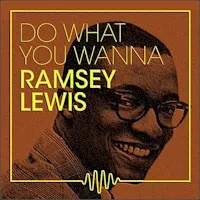Styles: Post-Bop, Straight-Ahead Jazz
Year: 2020
File: MP3@320K/s
Time: 64:50
Size: 149,8 MB
Art: Front
(10:43) 1. Overture/The Movement Revisited
( 3:20) 2. Sister Rosa - Prologue
( 6:25) 3. Sister Rosa
( 3:08) 4. Rosa Introduces Malcolm
( 2:49) 5. Brother Malcolm - Prologue
( 7:35) 6. Brother Malcolm
( 1:03) 7. Malcolm Introduces Ali
( 2:42) 8. Ali Speaks
( 6:00) 9. Rumble In The Jungle
( 0:40) 10. Rosa Introduces MLK
( 5:38) 11. Soldiers (I Have a Dream)
( 4:14) 12. A View From The Mountaintop
(10:26) 13. Apotheosis: November 4th, 2008
The spring 2020 release of The Movement Revisited: A Musical Portrait Of Four Icons is the latest chapter in Christian McBride's inspirational salute to the African American civil rights movement and to four of its heroes: Dr. Martin Luther King, Rosa Parks, Malcolm X and Muhammad Ali. Embracing big band jazz, small group jazz, gospel, funk and chorale musics, together with spoken word passages, the suite employs an eighteen-piece band, the ten-piece Voices Of The Flame gospel choir, two lead vocalists and four narrators. It concludes with a recently written fifth movement inspired by Barack Obama's election victory in 2008. At least two more movements suggest themselves: the Trump era and (bring it on) its aftermath.
The backstory: The Movement Revisited has its genesis in 1998 and a commission from the Portland (Maine) Arts Society. McBride was given a free hand in the commission other than the stipulation that it had to include a choir. He chose to write what he called a portrait of the civil rights movement, performed by a jazz quartet and a gospel choir. Rather than attempt documentary reportage in words and music, McBride set out to evoke the spirit of the movement.
In 2008, the Los Angeles Philharmonic invited McBride to make an expanded version of the suite for its upcoming concert season. (Timeline check: this was the year McBride was part of the lineup which recorded Pat Metheny's trio masterpiece Day Trip on the Nonesuch label). A few months later, Obama was elected President, and the Detroit Jazz Festival asked McBride to put together an ensemble to perform the piece. This led to the writing of the fifth movement, "Apotheosis November 4th 2008," in which the narrators playing King, Parks, X and Ali return to the stage to voice portions of Obama's victory speech. Rewind again: As a child, McBride learnt the history of the movement in school, but he had the good fortune to discover a more emotionally accessible resource than text books his grandmother's carefully archived collection of Jet and Ebony magazines from the 1960s and their profiles of the movement's leading lights. This was, he says, "the greatest gift my grandmother could have given me."
Fast forward to The Movement Revisited: Much of the album consists of instrumental ensembles and soloists, but these are anchored in spoken word sections in which actors quote passages from speeches made by King, Parks, X and Ali. Wendell Pierce (The Wire, Treme) represents King. Dion Graham (Malcolm X, The Wire) plays X. Vondie Curtis-Hall (Chicago Hope, Daredevil) plays Ali. The only non-actor is the distinguished poet Sonia Sanchez, who plays Parks.
This is an epic work. There are glancing resonances with Wynton Marsalis and the Lincoln Center Jazz Orchestra's Blood On The Fields (Columbia, 1997), but McBride tells his story in little over an hour, compared to the 3xCD set which Marsalis required. And do not mention Kamasi Washington. In that context, one is reminded of the 17th century mathematician Blaise Pascal's postscript to a correspondent: "I have made this letter longer because I have not had the time to make it shorter." Then again, in defense of Marsalis and Washington, McBride has had over twenty years on this project.~Chris Mayhttps://www.allaboutjazz.com/the-movement-revisited-christian-mcbride-mack-avenue-records
Personnel: Christian McBride: bass; Steve Wilson: saxophone, alto; Todd Bashore: saxophone; Ron Blake: saxophone; Loren Schoenberg: saxophone; Carl Maraghi: saxophone, baritone; Michael Dease: trombone; Steve Davis: trombone; James Burton: trombone; Doug Purviance: trombone; Lew Soloff: trumpet; Ron Tooley: trumpet; Frank Greene: trumpet; Freddie Hendrix: trumpet; Darryl Shaw: trumpet; Warren Wolf: vibraphone; Geoffrey Keezer: keyboards; Terreon Gully: drums.
The Movement Revisited: A Musical Portrait of Four Icons




















